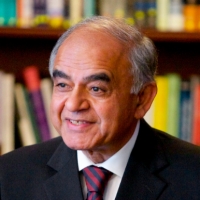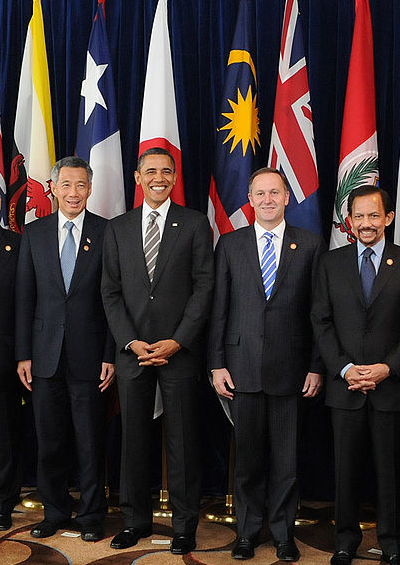Are You a Patriot Or a Nationalist?
Nationalism is on the rise from the United States to India and China. How to rein it in?
October 29, 2016
At a time when Donald Trump, a no-holds-barred American nationalist, made such inroads into the American body politic, we must zero in on the ill-fated rise of nationalism in the world.
A distinction that matters
As for myself, I am a patriot, not a nationalist. But I do feel sad that there is no meaningful dialogue between the two. This silence is what causes the terrible polarization in most democracies today.
Most of us probably wish for a world with more patriots and fewer nationalists like Donald Trump. But how do we get there?
At times of economic insecurity, there is a palpable sense of existential angst. Nationalism becomes both the fuse and the cover-up for these raw emotions.
George Orwell as a guiding light
One of my heroes, George Orwell, makes this distinction between nationalism and patriotism:
By ‘patriotism,’ I mean devotion to a particular place and a particular way of life, which one believes to be the best in the world but has no wish to force on other people…
In contrast, he described “nationalism” as “inseparable from the desire for power and prestige.”
As I see it, it is also a mechanism to impose one’s ideas onto others.
Since Orwell’s time, we have tended to use both words, nationalism and patriotism, vaguely and interchangeably. Many of us forget that they reflect opposing ideas.
Confusion between the two concepts may have brought about the surprising vote in Britain to exit from the European Union. It has also stained America’s election campaign for the presidency.
Both patriots and nationalists wish for their country to succeed, but the patriot wants all of his fellow citizens to succeed, especially its minorities. In contrast, the nationalist is mainly concerned with the whole.
A nationalist places his country over everything; a patriot might even choose justice over his country.
Differences in style and substance
This fundamental choice of what one really strives for can penetrate many areas of policymaking, even seemingly technical ones.
For example, in my home country of India, Indian patriots and nationalists were both happy when, on the historic night in early August 2016, the momentous Goods and Services Tax passed in our national parliament, the Rajya Sabha.
The nationalist was happy because the introduction of a nationwide value added tax makes for a stronger, more prosperous, more powerful India. And Indian patriots cheered because this policy move will also help the poorest Indian.
Nationalists tend to shout slogans to proclaim their country’s greatness. The patriot is quietly confident, aware of his nation’s strengths and weaknesses.
Utopian vision of past
As Donald Trump made so compelling clear during his 2016 presidential campaign, in feeling an irrepressible urge to holler, the nationalist reflects insecurity, low self-esteem, even a feeling of inferiority. Patriots tend to be much more comfortable in their skin.
“Every nationalist is haunted by the belief that the past can be altered,” wrote Orwell.
Donald Trump in the United States of America and the nationalists in Britain who voted to leave the European Union are both driven by the utopian vision of a pure past when they ruled the world and their countries were not beset with irritating immigrants.
They want a return to that mythical past, ignoring the fact that the world has changed.
Likewise, in today’s India, the Hindu nationalists dream of a pure Aryan past. They want their national history to prove the glory of ancient India and its later decline under Muslim rule.
Rise of nationalism again
Nationalists in India seek “a simple narrative of Hindus having been the original inhabitants of a land later known as British India and …the creation of a Hindu state is projected as a legitimate return to a rightful inheritance,” writes the historian, Romila Thapar, in a recent volume of essays, On Nationalism.
Thus, nationalist history is driven by power and hatred for the “Other.”
The past year has been a difficult one with the rise of nationalism around the world, including in China and India. This new nationalism is doing real harm.
It turns people against foreigners and minorities; it wants to close borders against immigrants; and it is against open trade.
All of this promises to undo the excellent legacy of the past 70 years of world history, which has made almost the entire world (and certainly no longer just the West) more prosperous and more peaceful.
Modesty matters
As a patriot, I cherish my country’s natural beauty, its man-made achievements and its history. While I love my country, I don’t want that love to oppress others.
I even wonder why my love has to stop at the border. In the end, I regard all wars as civil wars because we are human beings first and only citizens of nations afterwards.
Takeaways
Nationalists shout slogans to proclaim their country’s greatness. The patriot is quietly confident.
The silence between patriotism and nationalism causes terrible polarization in most democracies today.
Nationalists are driven by the vision of a past when they ruled the world and their countries were not beset with irritating immigrants.

